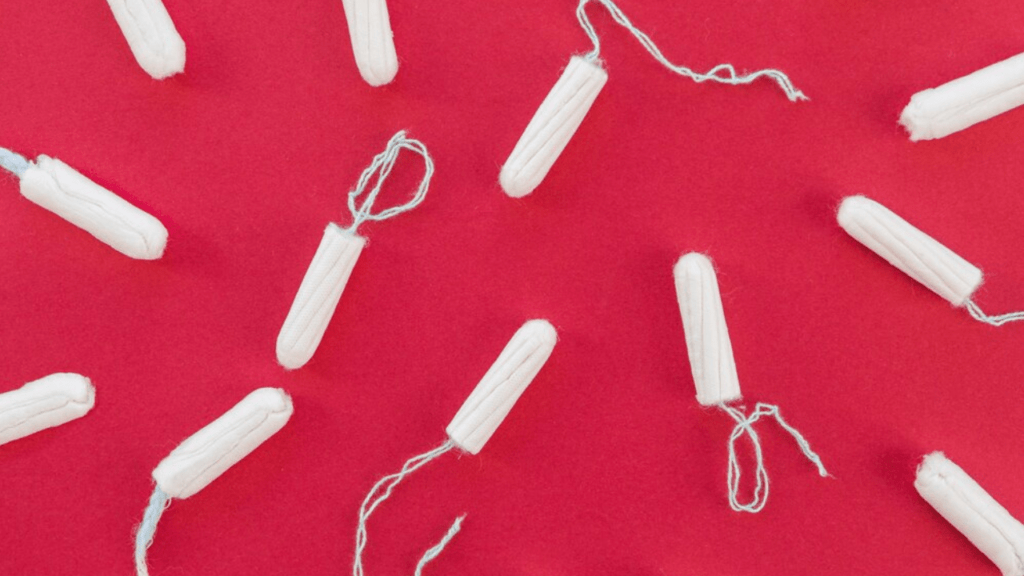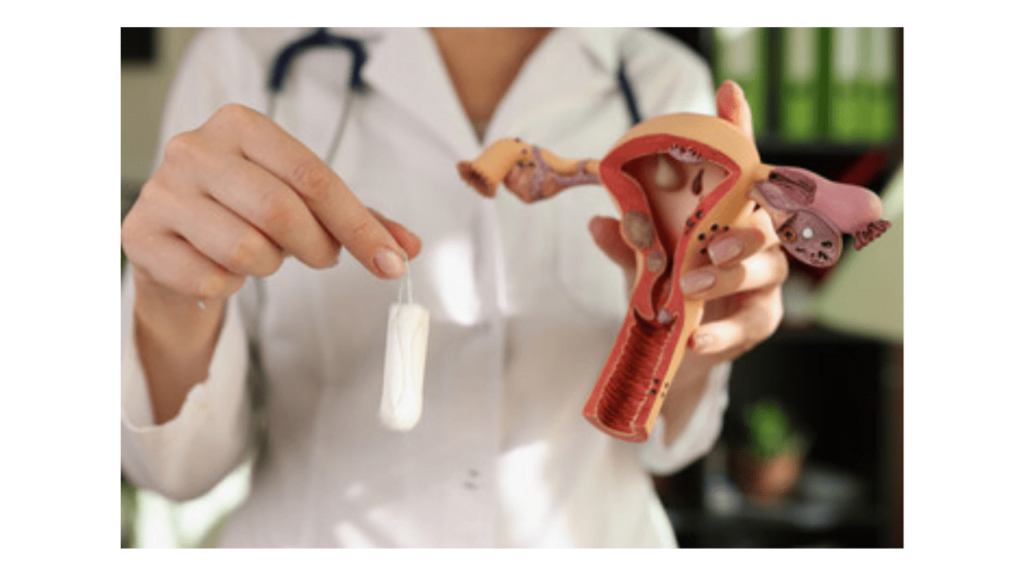A recent study has raised alarming concerns about the safety of the widely used product, Tampons. The study found measurable concentrations of toxic metals in various tampon brands.

Tampons are an essential product for many menstruating individuals, offering convenience and comfort during their menstrual cycle. However, a recent study has raised alarming concerns about the safety of these widely used products. Conducted by researchers from the University of California, Berkeley, the study found measurable concentrations of toxic metals in various tampon brands, posing potential health risks to users.
Key Findings of the Study
The study tested 30 tampons from 14 brands and 18 product lines, revealing the presence of 16 different metals, including lead, arsenic, and cadmium. These metals are known for their toxic properties and potential adverse health effects.
The study’s lead author, Jenni A. Shearston, highlighted the significance of these findings, noting the lack of prior research on the presence of metals in tampons.
Metals Detected in Tampons
The study identified the presence of the following metals in the tampons tested:
- Arsenic
- Barium
- Calcium
- Cadmium
- Cobalt
- Chromium
- Copper
- Iron
- Manganese
- Mercury
- Nickel
- Lead
- Selenium
- Strontium
- Vanadium
- Zinc
All 16 metals were detected in varying concentrations across the different tampon brands and product lines.
Why Are These Metals Concerning?
Toxic metals like lead and arsenic are hazardous because they can be absorbed by the body’s tissues. The vaginal tissue is particularly absorptive, which means that any toxic substances present in tampons could potentially enter the bloodstream directly.
Unlike other substances that are ingested and processed by the liver, anything absorbed through the vaginal tissue bypasses this filtering mechanism, increasing the risk of systemic exposure.
Potential Sources of Metal Contamination
The presence of metals in tampons could originate from several sources. Tampons are typically made from cotton, rayon, or a combination of both. The metals could have been absorbed from the soil where the cotton plants were grown or could be a result of chemicals used in the manufacturing process, such as antimicrobials or odor control agents.
Organic tampons, while containing less lead, were found to have higher concentrations of arsenic compared to non-organic ones, suggesting that the type of materials and processing methods used can influence metal content.

Implications for Public Health
The widespread use of tampons makes this study particularly concerning. In the United States alone, an estimated 52 to 86% of menstruating individuals use tampons. The potential for systemic exposure to toxic metals through a product used so intimately and frequently raises significant public health concerns.
What Can Be Done?
Given the findings of this study, there is a pressing need for regulatory action. Researchers have called for manufacturers to test their products for metals and to provide clearer labeling to inform consumers. Increased transparency about the ingredients and potential contaminants in menstrual products would allow users to make more informed decisions about their health.
FDA’s Response and Future Research
The Food and Drug Administration (FDA), which regulates tampons in the U.S., has acknowledged the study’s findings and is reviewing them. However, the FDA also noted that the study does not assess whether the metals detected are actually released from tampons during use or whether they are absorbed into the vaginal lining. More research is needed to determine the extent to which these metals could pose a health risk.
What Can Consumers Do?
While more research and regulatory actions are needed, consumers can take steps to protect themselves. Here are some tips for tampon users:
- Consider Alternative Products: Explore other menstrual products such as menstrual cups, organic cotton pads, or period underwear.
- Check Labels: Look for brands that provide transparency about their ingredients and manufacturing processes.
- Stay Informed: Keep up with the latest research and updates on menstrual product safety.
Menstrual Hygiene Tips
Maintaining proper menstrual hygiene is crucial for overall health and can help minimize the risk of infections and other health issues. Here are some key menstrual hygiene tips to follow:
- Change Tampons Regularly: Change tampons every 4-8 hours to prevent bacterial growth and reduce the risk of toxic shock syndrome (TSS).
- Use the Right Absorbency: Use tampons with the appropriate absorbency for your flow. If you have a light flow, stay away from overly absorbent tampons.
- Wash Hands Before and After: Always wash your hands before inserting and after removing tampons to maintain hygiene.
- Store Tampons Properly: Keep tampons in a cool, dry place to prevent them from becoming damp and contaminated.
- Avoid Scented Products: Scented tampons and pads can cause irritation and disrupt the natural balance of bacteria in the vagina.
- Practice Good Hygiene: Bathe regularly and ensure the genital area is clean and dry. To clean the area, use water and mild, fragrance-free soap.
Looking Forward!
The discovery of toxic metals in tampons is a wake-up call for both consumers and manufacturers. While tampons remain a convenient option for many, it is crucial to ensure that they are safe for use. As researchers continue to investigate the potential health risks associated with these findings, it is essential for consumers to stay informed and for regulatory bodies to implement stricter safety standards for menstrual products.
By advocating for better testing and transparency, we can work towards a future where all menstrual products are safe and free from harmful contaminants.
Read Next:

The Psychology of Love: Why Valentines Day Matters More Epic Than You Think
Discover the psychology of love and why Valentines Day is more important than you think. Learn how love impacts the brain, strengthens relationships, and boosts

Premier League Highlights: Arsenal Humiliate Man City 5-1, Spurs and Palace Secure Crucial Wins
Arsenal demolished Manchester City 5-1 in a statement premier league highlights win, reigniting their title hopes. Meanwhile, Crystal Palace stunned Man United 2-0, and Tottenham

How Budget 2025 Impacts the Indian Middle-Class: Major Tax Benefits and Glaring Omissions
Budget 2025 offers major tax relief to the middle class, including zero tax on incomes up to ₹12 lakh. However, it misses out on incentives

Degrees vs Employability: Why “Highly Qualified Degree Holders” Struggle to Find Jobs While “Less Qualified Individuals” Get Hired Faster!
Many highly qualified individuals struggle to secure jobs, while less qualified candidates get hired quickly. This Degrees vs Employability paradox is caused by employer preferences,

The Power of Mindset: Why Looking Poor Doesn’t Make You Poor, but Thinking Poor Does!
Discover why looking poor doesn’t define your wealth but thinking poor does. Learn the power of mindset and how a growth-oriented mindset can lead to

Overthinking: How It’s Damaging Today’s Youth – Causes and Cure in 2025
Understanding how overthinking is silently damaging today’s youth, from its causes rooted in societal pressure and social media to its long-term effects on mental health.
